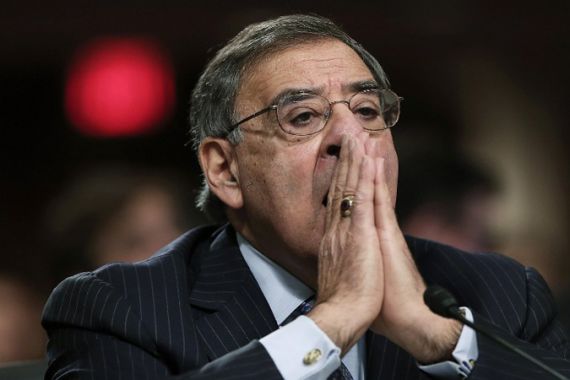US defence chiefs defend Benghazi response
Pentagon chief says distance special forces had to travel partly explains why the military failed to stop deadly attack.

US defence chiefs have defended the military response to last year’s deadly attack on a US mission in Libya, vowing to position small, quick reaction forces closer to global crises centres to be better prepared for any future assaults.
Defence Secretary Leon Panetta and Army General Martin Dempsey, the chairman of the Joint Chiefs of Staff, were called to testify in front of Congress on Thursday to explain why the military failed to stop the attack that killed four Americans, including Ambassador Chris Stevens.
The two explained that they moved quickly to deploy commando teams from Spain and Central Europe last September 11, the day of the assault on the US installation in Benghazi, but the first military unit did not arrive until 15 hours after the first two attacks.
|
“We’ve asked each of the services to examine their capacity to build additional reaction-like forces, small, rapidly deployable forces.“ – Army General Martin Dempsey |
“Time, distance, the lack of an adequate warning, events that moved very quickly on the ground prevented a more immediate response,” Panetta said in likely his last appearance before Congress before stepping down as Pentagon chief.
Republicans have accused President Barack Obama’s administration of an election-year cover-up of a terrorist attack in the nearly five months since the assault, and they kept up the politically charged onslaught on Thursday.
The military also found itself under attack, with at least one senator accusing the Joint Chiefs chairman of lying.
Quick reaction forces
Faced with repeated questions about where units were during the attack and what they were doing, Dempsey said the military is taking steps to deal with the next crisis.
“We’ve asked each of the services to examine their capability to build additional reaction-like forces, small, rapidly deployable forces,” Dempsey said.
In more than four hours of testimony, Panetta and Dempsey described a military unit faced with not a single attack over several hours, but two separate assaults six hours apart; little real-time intelligence data and units too far away to mobilise quickly.
On the night of the attack, Panetta issued orders for military forces from Spain and Central Europe to deploy to Libya and for another team of special operations forces in the US to prepare to deploy to a staging base in Europe.
The first of those units did not arrive in the region until well after the attack.
Defence officials have repeatedly said that even if the military had been able to get units there a bit faster, there was no way they could have gotten there in time to make any difference in the deaths of the four Americans.
The general said the military was concerned with multiple threats worldwide and, based on time and positioning of forces, “we wouldn’t have gotten there in time”.
Several committee Republicans pressed Panetta and Dempsey about their discussions with Obama on that day and his level of involvement, suggesting that after the initial conversation the commander in chief was disengaged as Americans died.
Panetta said he and Dempsey were meeting with Obama when they first learned of the Libya assault – he said the president told them to deploy forces as quickly as possible.
Panetta pushed back against Republican criticism that the Obama administration ignored warning signs about the attack. The Pentagon chief insisted there were no signs of or specific intelligence about an imminent attack.
In the six months prior to the assault, the government was apprised of 281 threats to diplomatic missions, consulates and other facilities worldwide, he said.
Panetta is retiring after a Washington career that has stretched across four decades, with years as a California congressman, budget chief, White House chief of staff to President Bill Clinton and CIA director who oversaw the hunt for and killing of Osama bin Laden.